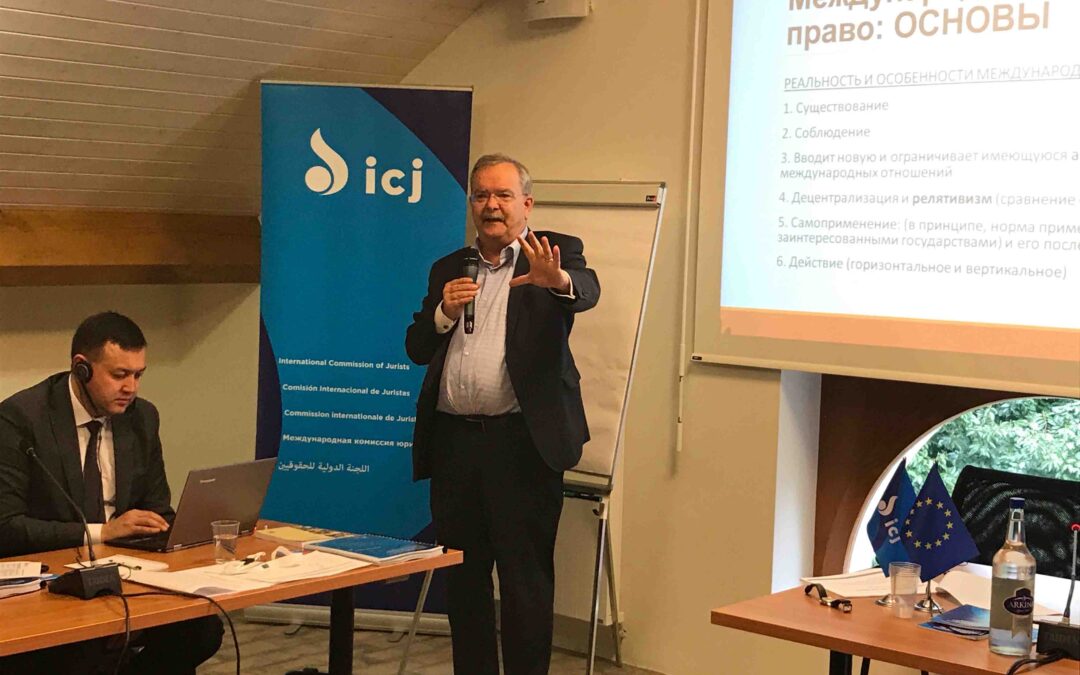
May 1, 2017 | News
Today, the ICJ begins its third International Human Rights Training Programme for Lawyers from Central Asia.
The objective of this programme is to train Central Asian lawyers on application of international human rights law in criminal proceedings.
In the course of the programme, the participants will learn how to use international human rights law in national courts and to make effective use of international human rights mechanisms.
Leading international experts and practitioners will share their insights with the participants of the training programme on how to interpret key concepts of international human rights law and apply them in practice, both nationally and internationally.
The training programme is built around the study of the relevant international jurisprudence on the right to fair trial, right to liberty, freedom from torture and other ill-treatment, and associated rights, including cases originating from Central Asian region considered by UN treaty bodies, such as the UN Human Rights Committee.
“Lawyers are on the frontline of implementing international human rights law in practice, and this remains an enormous challenge in Central Asia,” said Róisín Pillay, Director of the ICJ Europe and CIS Programme.
“The programme presents a unique opportunity for lawyers from the region to meet key experts in international human rights law, officials from the UN Secretariat and other lawyers from the ICJ network, and to develop practical expertise on how to apply international human rights law in the defence of their clients,” she added.
In the course of the training programme, the participants will attend one of the meetings during the 60th session of the UN Committee Against Torture (CAT) that will take place in Geneva on 18 April–12 May 2017.
The 25 participants have been selected through a rigorous process from among 150 applications from across the region, which testifies to the growing interest of lawyers from the region in applying international human rights standards in their practice.
The ICJ is grateful to the European Union for its support of this initiative.
Download training materials in Russian:
Central Asia-Arbitrary arrest and detention-Training Modules-2017-RUS
Central Asia-CIS lawyers training-Training Modules-2017-RUS
Central Asia-Master file caselaw-GTP-Training Modules-2017-RUS
Central Asia-NRefpresMFICJ-CIS training-Training Modules-2017-RUS
Central Asia-PIL and HRL_Sassoli-Training Modules-2017-RUS
Central Asia-PPT Right to life-Training Modules-2017-RUS
Central Asia-Torture Pollard-Training Modules-2017-RUS
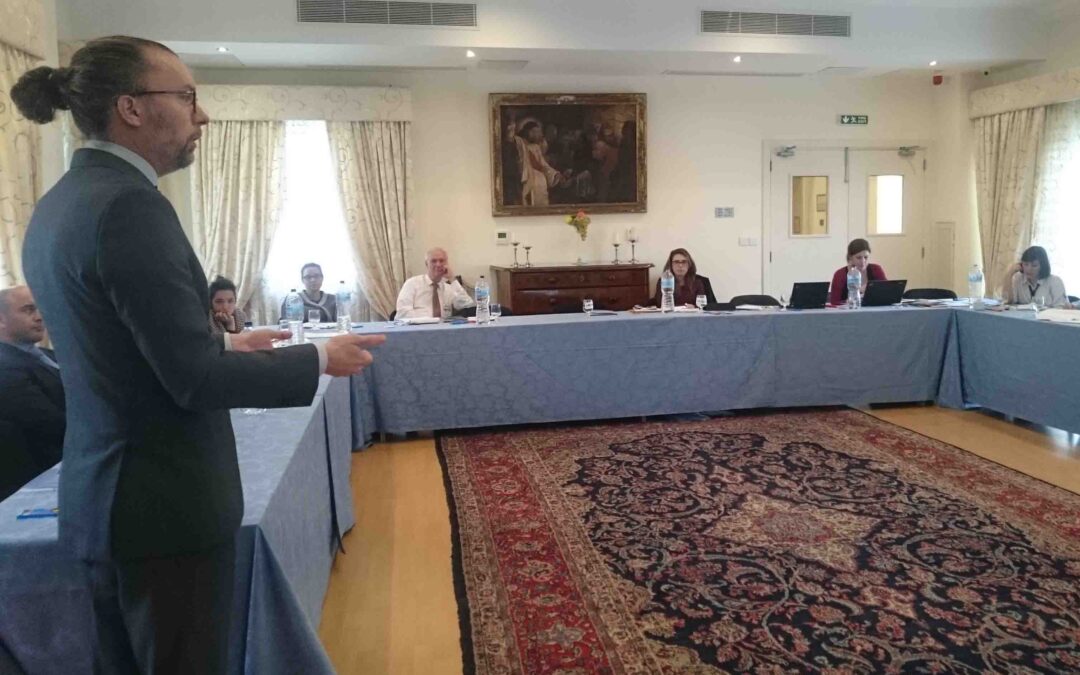
Feb 16, 2017 | Agendas, Events, News, Training modules
Today, the ICJ and Aditus are holding a training for lawyers on the rights of migrant children and on accessing international human rights mechanisms in Valetta.
The training aims to support the strategic use of national and international mechanisms to foster migrant children’s access to justice.
The training will take place over the course of two days 16-17 February 2017.
The training will focus on accessing the international mechanisms in order to protect and promote the rights of migrant children, the child’s right to be heard and economic, social and cultural rights.
A practical case analysis will be part of the training. Trainers include experts from the ICJ and the Hague University.
The training is based on draft training materials prepared by the ICJ (to be published in the second half of 2017) and the ICJ Practitioners Guide no. 6: Migration and International Human Rights Law.
It is organized as part of the FAIR project co-funded by the Rights, Equality and Citizenship Programme of the European Union and OSIFE.
As part of the project, this training follows the trainings on the rights of migrant children in Spain, Italy and Bulgaria, trainings in Germany, Greece and Ireland will follow this year.
Download the agenda in English here:
Malta-FAIR training-News-Agenda-2017-ENG
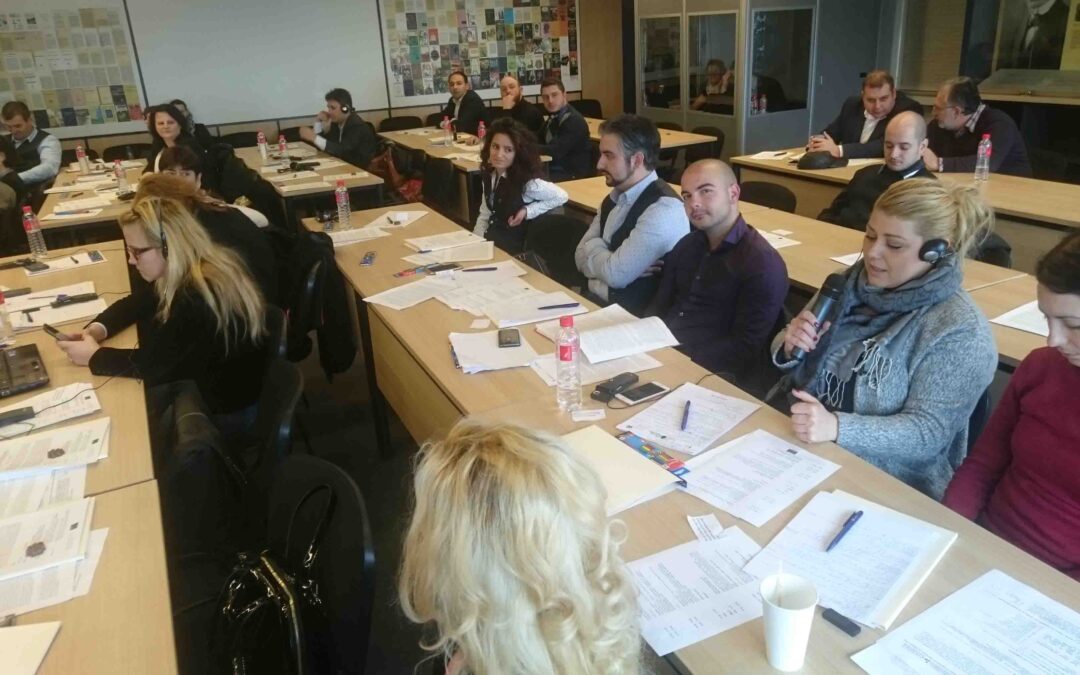
Jan 21, 2017 | Agendas, Events, News, Training modules
Today, the ICJ and Legal Clinic for Refugees and Immigrants are holding a training for lawyers on the rights of migrant children and on accessing international human rights mechanisms in Sofia.
The training aims to support the strategic use of national and international mechanisms to foster migrant children’s access to justice.
The training will take place over the course of two days from 21-22 January 2017.
The training will focus on accessing the international mechanisms in order to protect and promote the rights of migrant children, the child’s right to be heard and the best interests of the child principle.
A practical session on communication with child clients for lawyers as well as practical case studies will be part of the training.
Trainers include experts from the ICJ, Child Law Clinic of the University College Cork and Foundation for Access to Rights.
The training is based on draft training materials prepared by the ICJ (to be published in the second half of 2017) and the ICJ Practitioners Guide no. 6: Migration and International Human Rights Law.
It is organized as part of the FAIR project co-funded by the Rights, Equality and Citizenship Programme of the European Union and OSIFE.
Download the agenda in English here: Bulgaria-FAIR training-Events-Agenda-2016-ENG
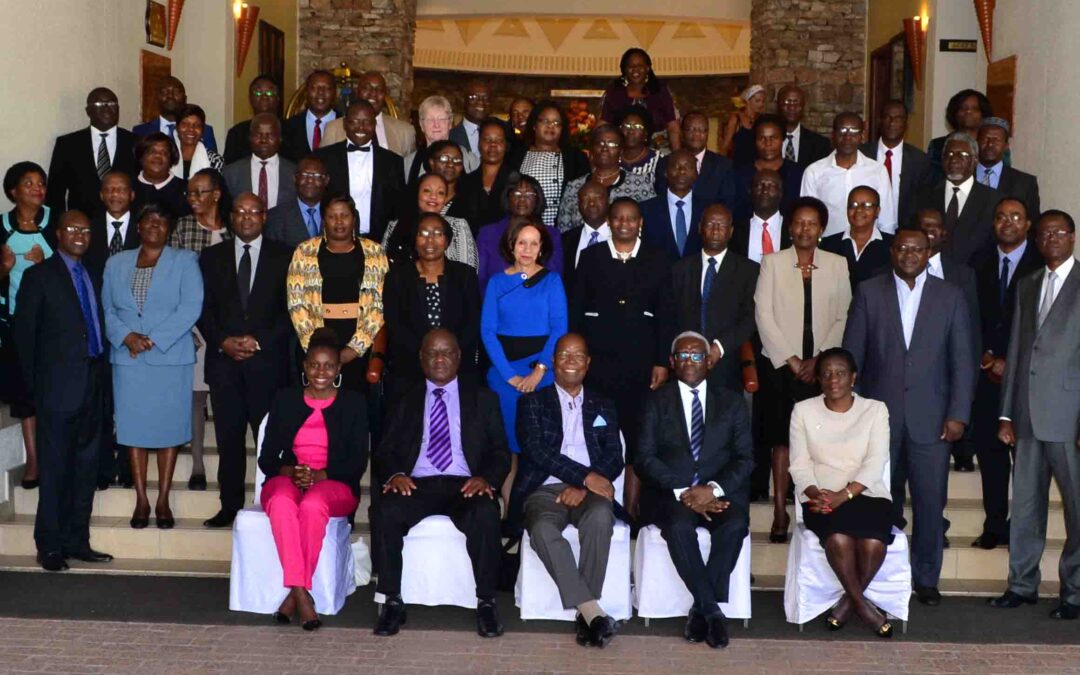
Jul 30, 2016 | News
The ICJ and the Judicial Service Commission of Zimbabwe, held a two-day Judicial Symposium for the end of the Second Term, at the Elephant Hills Hotel, Victoria Falls.
The subjects for discussion chosen by the judges reflect areas where judges felt the need for enlightenment.
In his opening remarks, the Deputy Chief Justice Malaba said that the purpose of this Symposium was to provide an opportunity for the judges to discuss and share ideas on the subjects chosen at the recreational environment.
The Symposium would serve to equip every judge with skills to feel confident in presiding over and disposing of cases fairly and expeditiously.
The former Chief Justice of South Africa Sandile Ngcobo delivered the keynote address which focused on Continued Judicial Education. Chief Justice Ngcobo stated that it was the collective responsibility of the judiciary to ensure it is sufficiently equipped to meet the demands of society and for the efficient dispensation of justice.
This would be achieved through continued judicial education.
Chief Justice Ngcobo was of the view that the importance of Continued Judicial Education lay beyond improving quality of justice but for the qualification of justice
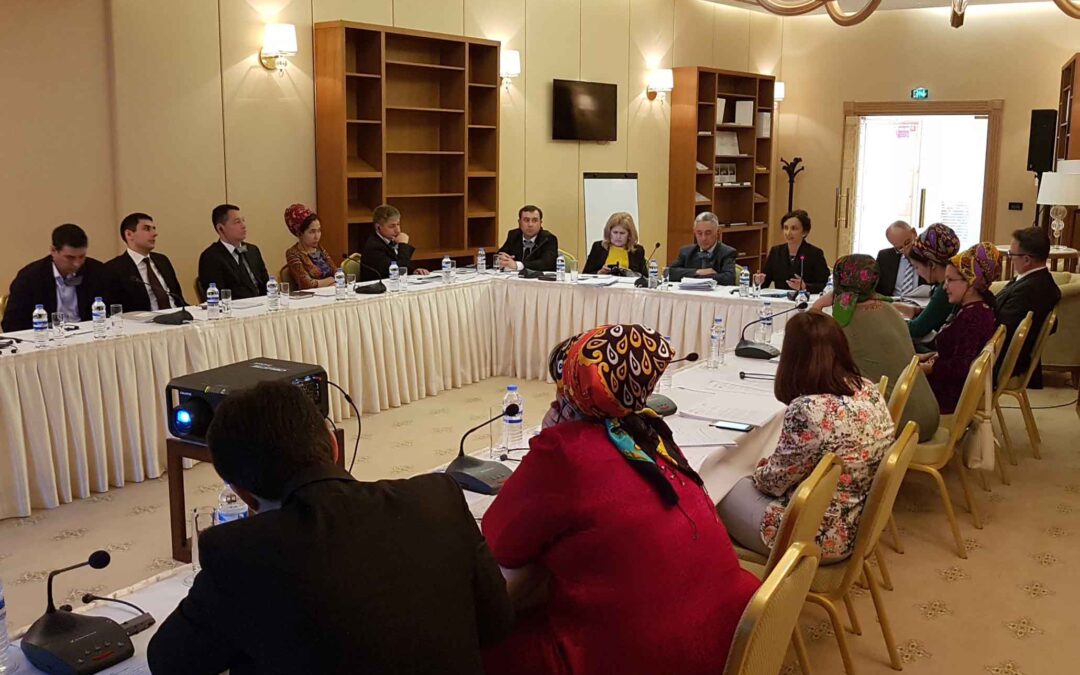
Jun 9, 2016 | Agendas, News
The ICJ today conducts a training seminar organized in Ashgabat on international human rights obligations and national courts.
The seminar will be attended by judges of the Supreme Court, representatives of the Prosecutor General’s office, the Ministry of Justice, lawyers as well as representatives of other institutions.
ICJ commissioners and staff members will participate event, including Justice Azhar Cachalia, Justice Radmila Dicic, Professor Andrew Clapham.
The seminar is organised in cooperation with the EU.
Contact
Róisín Pillay, Director, Europe Programme, roisin.pillay(a)icj.org
Temur Shakirov, Legal Adviser, Europe Programme, temur.shakirov(a)icj.org









